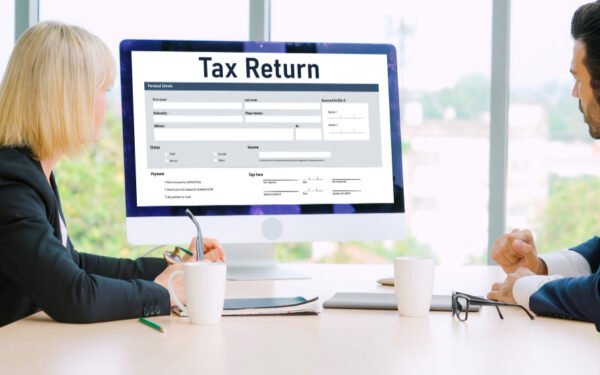How to Manage a Healthy Monthly Budget
Managing your monthly budget is the easiest way to financial freedom, whether your goals are saving, staying out of debt, or paying off existing debt. Our day to day expenses may seem small, but they can add up, and can quickly eat up salary left over from bills and groceries.
While there are a number of ways to manage your budget, everything starts with figuring out what and where you’re spending your money.
Understanding Your Expenses
Take a recent pay slip and write down the amount you receive after taxes on the top of a piece of paper. Deduct your monthly expenses from this amount, including all of your bills (don’t leave any out), the cost of rent, your phone bill, how much you spend on insurance, and how much you spend on groceries. If you’re like most of us, you might not actually know what some of those figures are. Once you’re done adding necessary expenses, deduct unnecessary expenses such as shopping, eating out, and entertainment. If your costs are higher than average, you can look for lower rates.
Groceries – Save all of your receipts, and add them together at the end of every month. You’ll quickly see a tally of how much you’re spending and where.
Bills – Save all of your bills. Don’t throw any of them away. Keep them in a shoe box or an organizing file. Tally them up, and use a paperclip to keep them together into organized months after they have been paid.
Entertainment – Don’t forget to add in random entertainment, such as movies, club entrance, alcohol, etc.
Eating Out – Restaurants, fast food, coffee, you should add up everything. Even quick stops at convenience stores for tea or a soda. Save your receipts every month, and add them in.
Shopping – Save all of your receipts and deduct them from your total salary.
Long Term Bills – Mortgage, student loan, car title loans etc.
Misc. – You’ll still have miscellaneous expenses like haircuts, vet appointments, visits to the doctor, and car bills if you own a car. Plan for them.
Taxes – How much do you owe in taxes in addition to what is deducted from your salary. In some cases it may be nothing, for others, it may be a lot. Consider using your previous year’s taxes as a guideline and divide the total between the 12 months of the year, unless your economic situation has changed (I.E. you graduated and have started working)
Once you write everything down, you’ll quickly be able to see how and where you spend your money. You’ll also be able to see what you have left over after paying rent and bills, and you’ll be able to make smart decisions as to where and how you spend it.
Decide How Much You Can Spend
Once you know how much you’re spending on essentials, you can decide how much to save, and how much to spend on other items. You should usually aim to save a minimum of 10% of your income, and you can start out by immediately deducting that from your expenses. If you can save more, even better. Most banks will allow you to set up an automatic withdrawal system for your savings account.
1) Decide how much you can spend on shopping per month. Setting a monthly budget for fashion will curb your spending, and help to limit impulse buys.
2) Set a maximum budget for food and groceries, but remember this is one you can be flexible on. Consider shopping frozen meat and vegetables to save money, and avoid pre-packaged microwavable foods, which offer low value per meal. Swapping out meat for beans or tofu once or twice a week can help your budget as well.
Cutting Unnecessary Expenses
Cutting unnecessary expenses is the second step to deciding on how and where to spend money. A $4 cup of coffee at Starbucks doesn’t seem like much, but over a month, that turns into a pricey habit that can add up to over $1,000 per year. The same goes for energy drinks, if you’re drinking 2-4 per day, you’re likely spending anywhere form $150-$400 per month. Switch to home brewed coffee, and you’ll spend an average of 10-40 cents per cup instead. Eating out is another huge expense, the average meal costs a minimum of $10 to purchase in a restaurant, and you’ll likely end up spending $2-10 on drinks to go with it. Even lunches add up, and can be pricey at $8-14 a day in most business districts. Pack your own lunches, and if you’re not fond of cooking, make large meals that you can pack with you. But, while it’s not practical to go out once a week to order $15 designer cocktails, you shouldn’t cut luxuries out completely. Instead, plan excursions or cheat days once or twice a month.
There are other expenses you can cut too, and most of them are easier than you’d think.
For example, the average cable bill is $80 per month, but you could switch to Netflix and pay less than $15. If you have multiple credit card bills, and some of them are small, you could be saving a great deal by just paying the smallest off first. You’ll build up interest on the others in the meantime, but the fewer bills you have, the more you can pay one the ones you have left, and the less interest you’re paying at once. If you’re spending $120 a month on your cell phone, you could consider switching to an unlimited plan, or a prepaid unlimited plan like Boost, which is $50 per month, or try a low cost plan option like Freedompop. If your electric bill is high, try turning off all of the lights you aren’t using, lower the thermostat as much as possible, and take 3-5 minute showers. Not only will you cut back on energy usage, you’ll be helping the environment too.
Keep Track
Simply taking the time to enter all of your daily expenses into an excel sheet at the end of the day can help you with managing your expenses. Not only will you immediately be able to see where your money went, you’ll have some sort of accountability throughout the day. It’s a lot harder to go through with an impulse purchase if you know you’ll have to write it down at the end of the day.
Managing a healthy monthly budget is mostly a matter of knowing where your money is going, deciding how you will spend it, and having the discipline to follow through. Once you start to build healthy monetary habits, it’s actually easier than you think.




The first thing to remember about budgets is that most people don't have one. They don't even know where to start. So you have to just do it. Track your expenses and monitor your income. It gets easier over time.
Unfortunately budgets are not used as much as they should be. Most people just don't use them. Start by putting your expenses in a spreadsheet and pay close attention to your income. You will get used to it.